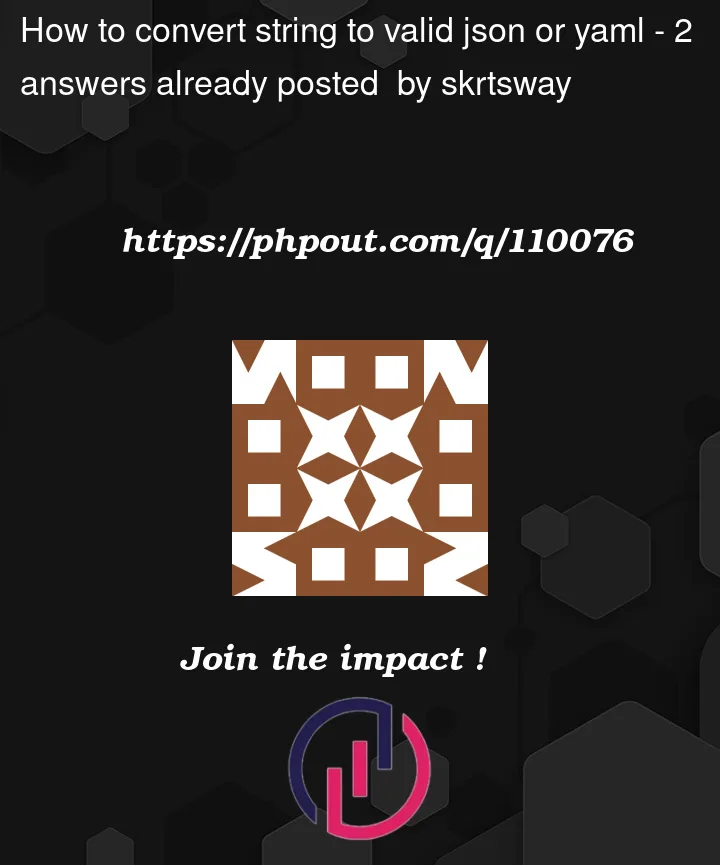I have a large script that parses js with a dataframe entry, but to shorten the question, I put what I need in a separate variable.
My variable contains the following value
value = "{from:[3,4],to:[7,4],color:2},{from:[3,6],to:[10,6],color:3}"
I apply the following script and get data like this
value = "{from:[3,4],to:[7,4],color:2},{from:[3,6],to:[10,6],color:3}"
def parse_json(value):
arr = value.split("},")
arr = [x+"}" for x in arr]
arr[-1] = arr[-1][:-1]
return json.dumps({str(i):add_quotation_marks(x) for i, x in enumerate(arr)})
def add_quotation_marks(value):
words = re.findall(r'(w+:)', value)
for word in words:
value = value.replace(word[:-1], f'"{word[:-1]}"')
return json.loads(value)
print(parse_json(value))
{"0": {"from": [3, 4], "to": [7, 4], "color": 2}, "1": {"from": [3, 6], "to": [10, 6], "color": 3}}
The script executes correctly, but I need to get a slightly different result.
This is what the result I want to get looks like:
{
"0": {
"from": {
"0": "3",
"1": "4"
},
"to": {
"0": "7",
"1": "4"
},
"color": "2"
},
"1": {
"from": {
"0": "3",
"1": "6"
},
"to": {
"0": "10",
"1": "6"
},
"color": "3"
}
}
This is valid json and valid yaml. Please tell me how can I do this




2
Answers
I’d suggest a regex approach in this case:
This produces this output in
res:Since your values can contain commas, trying to split on commas or other markers is fairly tricky, and using these regexes to match your desired values instead is more stable.
Here’s the code that converts the the
valueto your desired output.Output
json5package allows you to convert a javascrip object to a python dictionary so you dont have to dosplit("},{").[and]to make the string a valid json.json5.loads()